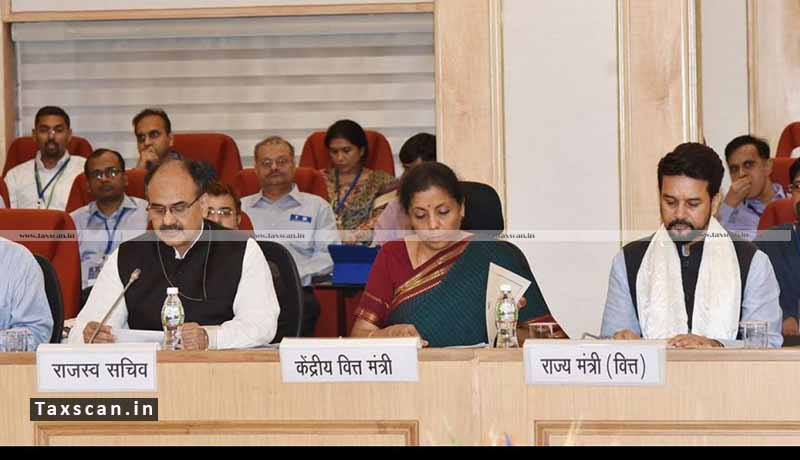35th GST Council Meeting: E-Invoices Mandatory for B2B Transactions from January

The 35th GST Council Meeting after the swearing in of the new Government passed a resolution acknowledging the stellar role played by Shri Arun Jaitley, the former Chairperson of GST Council and expressed its gratitude and appreciation for the exemplary contribution made by him in making the GST Council a shining example of co-operative federalism that it has become today. The Council also thanked the outgoing Members and welcomed the new Members of the Council. It also expressed its deepest condolences at the untimely demise of Shri Prakash Pant, the former Finance Minister of Uttarakhand.
The meeting was also attended by Union Minister of State for Finance & Corporate Affairs Shri Anurag Thakur besides Revenue Secretary Shri Ajay Bhushan Pandey and other senior officials of the Ministry of Finance. The meeting took place in a cordial and professional manner.
Altogether, 12 Agenda items were discussed during the Council meeting. Some of these items were of regular nature like confirmation of the Minutes of the 34th GST Council Meeting, deemed ratification by the Council of notifications, circulars and orders issued by the Central Government between 12th March, 2019 and 11thJune, 2019, taking note of the decisions of GST Implementation Committee, etc.
The Council took a decision regarding location of the State and the Area Benches for the Goods and Services Tax Appellate Tribunal (GSTAT) for various States and Union Territories with legislature. It has been decided to have a common State Bench for the States of Sikkim, Nagaland, Manipur and Arunachal Pradesh.
The tenure of National Anti-Profiteering Authority has been extended by 2 years.
The Council also decided to introduce electronic invoicing system in a phase-wise manner for B2B transactions. E-invoicing is a rapidly expanding technology which would help taxpayers in backward integration and automation of tax relevant processes. It would also help tax authorities in combating the menace of tax evasion. The Phase 1 is proposed to be voluntary and it shall be rolled out from January 2020.


